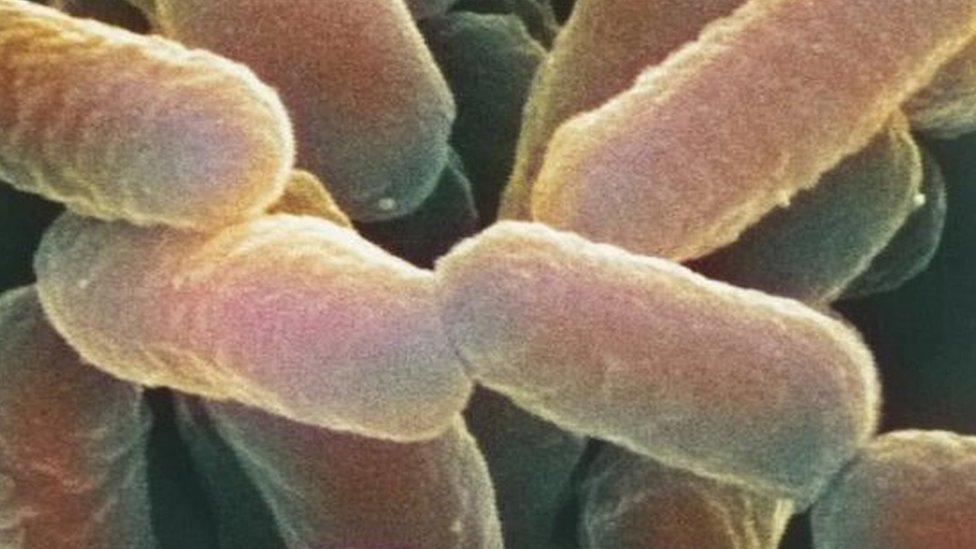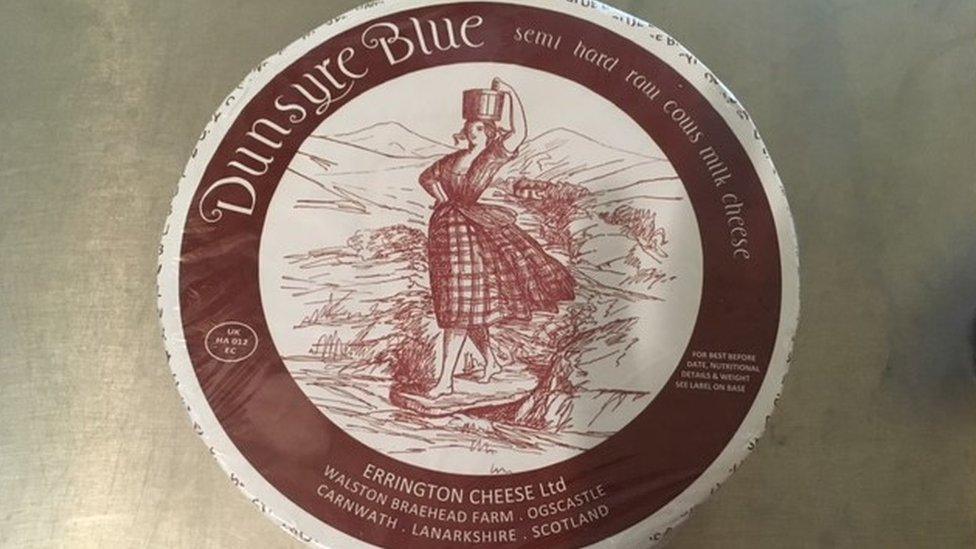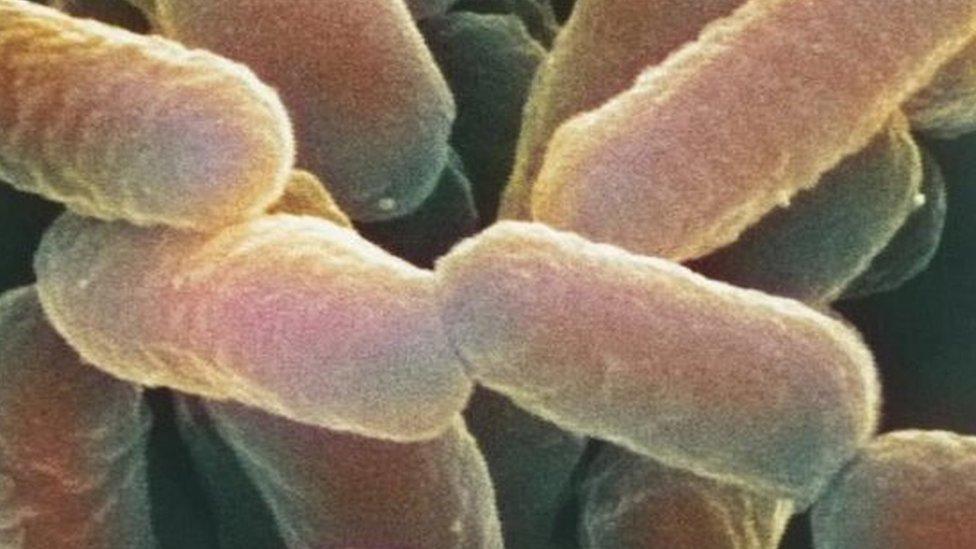Child dies in E. coli bug outbreak linked to blue cheese
- Published

The E. coli bug is found in animals' guts and can cause cramps, diarrhoea, vomiting and fever
A child has died following an outbreak of the E. coli O157 bug in Scotland.
The child was among 20 confirmed cases of infection - detected between 2 and 15 July - 11 of whom had received hospital treatment.
Health officials are investigating possible links to Dunsyre blue cheese, which is made with unpasteurised milk.
South Lanarkshire-based Errington Cheese, which makes Dunsyre blue, said last month that testing had shown it to be "completely clear of E. coli O157, external".
Health Protection Scotland said that epidemiological investigations had "identified Dunsyre Blue cheese as the most likely cause of the outbreak".
It added: "Despite extensive investigation, including looking for other possible food sources, no other link to a majority of cases could be established."

What is E.coli?
E.coli is a type of bacterium commonly found in the intestines of humans, livestock and other animals, and is excreted in faeces.
The O157 strain is a leading cause of food-borne illness and can be particularly dangerous.
The bacterium is generally spread by contaminated food and water but also can be passed among humans.
In people with weak immune systems, particularly young children and the elderly, the infection can cause serious kidney damage, blindness, paralysis and sometimes death.
Symptoms can include abdominal cramps and diarrhoea that may be bloody and people may also experience fever and vomiting.

Dr Alison Smith-Palmer, from Health Protection Scotland's Incident Management Team (IMT), said: "On behalf of the IMT, I would like to take this opportunity to extend our deepest sympathies to the family of the child who has died.
"Our thoughts are with them at this time and we ask that their privacy be respected.
"All confirmed cases became unwell prior to the end of July. As there have been no new cases since then the IMT will now stand down and work to produce its final report."
It is understood that the final report could take up to six months to produce.

South Lanarkshire-based Errington Cheese said its own tests had shown the product to be clear of the bug
In a statement issued last month on its website, Errington Cheese said its own tests had shown the product to be clear of the bug.
"All our testing, covering a period of almost six months from 21 March to date, is completely clear of E. coli O157," the statement said.
"All authority testing is negative for E. coli O157. All customer testing for E. coli O157 is negative. All farm testing for E. coli O157 is negative."
The statement added: "From what we can gather all cases had an onset of symptoms between 1st -15th July (2 week period).
"However, our cheese was available over a 8/9 week period.
"From this we conclude that the outbreak was more likely to have been caused by something with a shorter shelf-life or not by a food at all."
- Published12 August 2016

- Published29 July 2016
